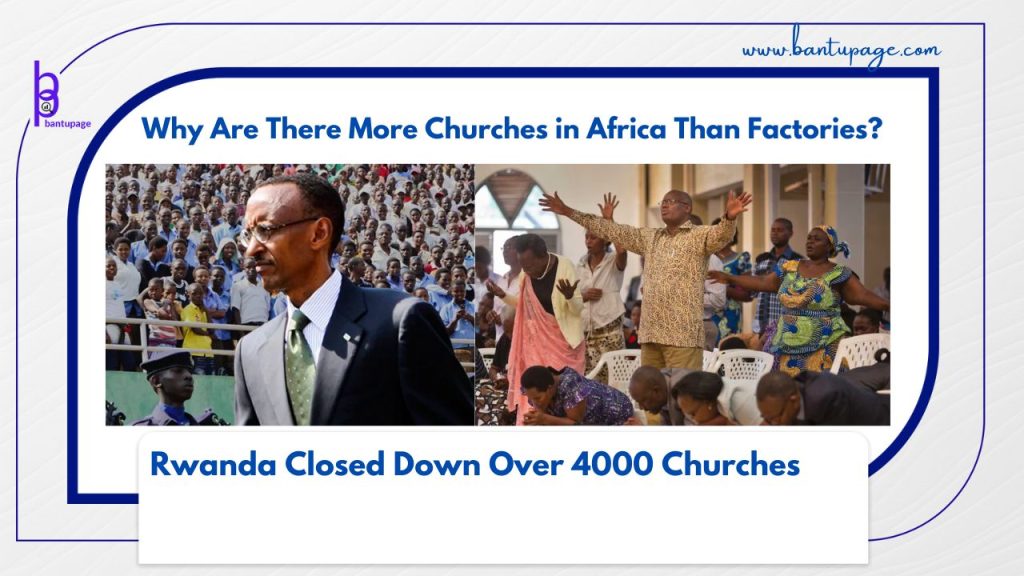
Rwanda Shuts Down Over 4000 Churches and Mosques For Potentially Swindling the Faithful
The closures occurred throughout the country. The law’s passage five years ago led to the closure of over 700 churches. However, since Paul Kagame’s nearly 100% reelection, the closure rate has skyrocketed—a phenomenon never seen in a true democracy. Unless North Korea is considered a democracy, that would mean Kim Jong Un and Paul Kagame have something in common. The capacity to win elections by almost 100%. Pastorpreneurship and religion have grown to conglomerate in sub-Saharan Africa, with more churches than factories, research institutions, universities, and hospitals combined. Nigeria leads the pack, with the highest number of churches, with the church being the country’s number one export to the continent. The minister of Local Government, Jean Claude Musabyimana, insisted that it is critical to regulate churches in Rwanda to slow down the proliferation of places of worship.
President Paul Kagame’s rule is near absolute. Criticism of the president is nonexistent. Even though it has been argued that absolute power corrupts absolutely, Mr Kagame has not demonstrated such corrupt practices, as Rwanda frequently ranks amongst the least corrupt countries in Africa and the world. He has likened the increase in churches in the country as unnecessary and has called for clamping down on the noise pollution that it feeds to society.
Health hazards and a lack of a crowd control mechanism are two of the key areas that the Rwandan government is not willing to tolerate. Some of these churches operate in substandard structures, lacking any planning for crowd control. In Nigeria, churches have collapsed, and stampedes have occurred at many church venues with no government intervention. Nigeria lacks a government that prioritises the welfare of its citizens. Similar to Rwanda; unless this situation changes, similar incidents will persist in Nigeria. Unlike Nigeria, the Rwandan government prioritises safety.
Most of the closed churches were Pentecostal—the speaking in tongues, prophecies, healing, and exorcism type. A large number of Nigerian churches are Pentecostal churches. In Rwanda, a church requires registration with the Rwanda Governance Board, basic infrastructure, sanitation, soundproofing, lightning protection, and theological training for all its preachers.
Rwanda’s Minister of Local Government, Jean Claude Musabyimana, explained that the closure of the churches was due to their failure to meet the required legal standards, which could potentially expose the faithful to faith scams. This law, introduced in 2018, has led to the closure of over 5000 churches, with the aim of protecting the faithful from potential exploitation.
Under Rwanda’s law, over 60% of Nigerian churches would have shut down, and miracle-healing pastors forced to look for proper jobs like the rest of us. This law, with its requirements for soundproofing and other basic standards, is a testament to the fairness and equality it seeks to uphold. Imagine the relief from noise pollution if Nigerian churches were required to have soundproofing. Religion forced is religion disbelieved. Miracle advertised is the promotion of a product for revenue. Prayer publicised is a façade to impress.
Should Rwanda’s religious law be introduced to Nigeria?
By Ikechukwu ORJI





